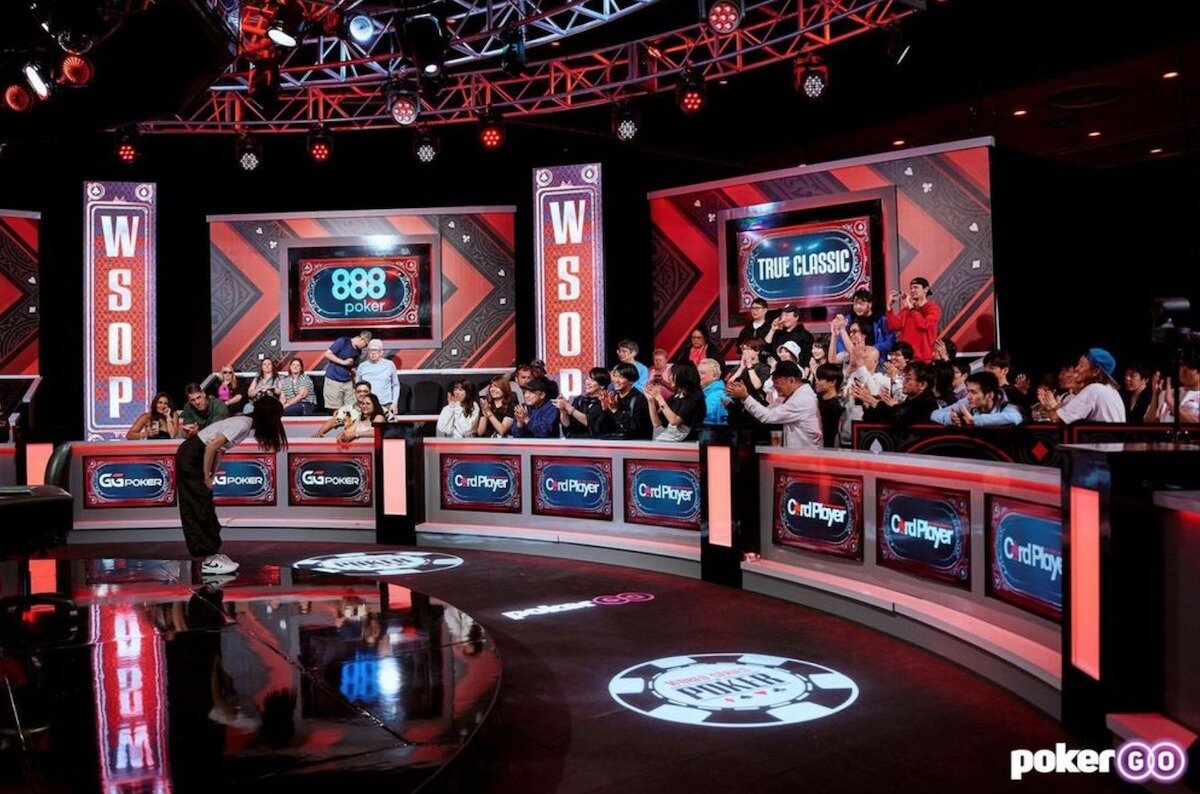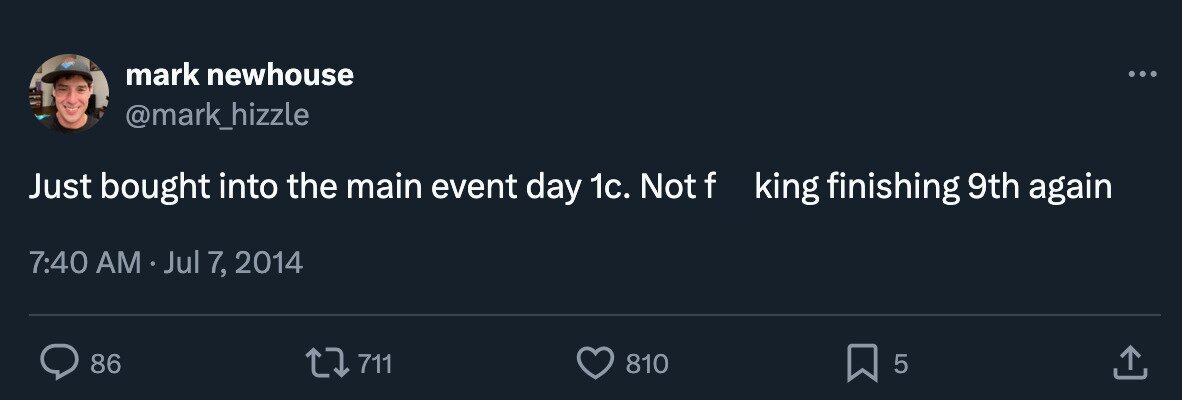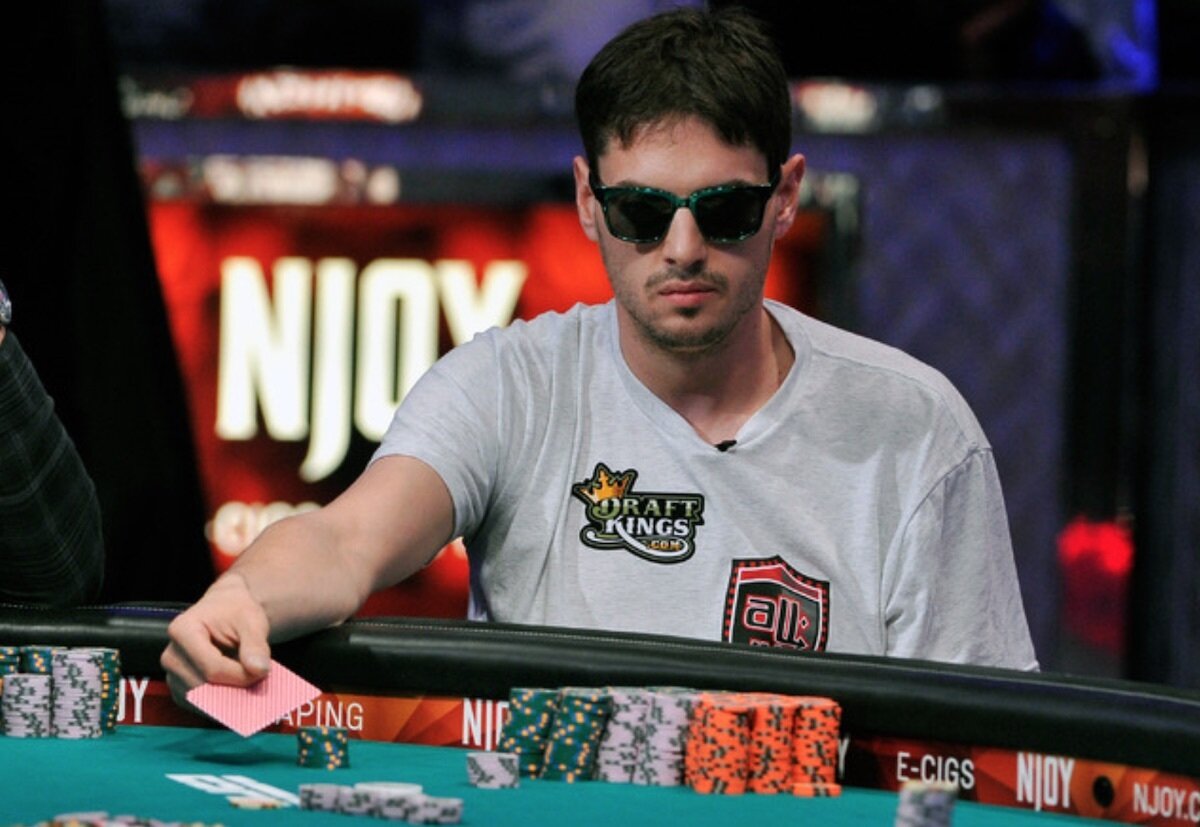A year earlier, the Japanese player Shiina Okamoto was one of 1,295 entrants in the WSOP $1,000 buy-in Ladies Championship. Coming second to Tamar Abraham, Okamoto was heartbroken, despite the result worth $118,768. One year on, Okamoto returned determined to go one place further. With 1,245 entries, this year Okamoto on the $171,732 top prize after beating fan favorite Jamie Kerstetter heads-up in Las Vegas.
| WSOP Event #71: $1,000 Ladies Championship Final Table Results: | |||
| Place | Place | Country | Prize |
| 1st | Shiina Okamoto | Japan | $171,732 |
| 2nd | Jamie Kerstetter | United States | $114,479 |
| 3rd | Ceci Liao | United States | $81,573 |
| 4th | Linda Durden | United States | $58,910 |
| 5th | Mor Kamber | Israel | $43,125 |
| 6th | Cecile Ticherfatine | France | $32,007 |
| 7th | Susan Bluer | United States | $24,090 |
| 8th | Haruna Fujita | Japan | $18,390 |
| 9th | Andrea Sager | United States | $14,242 |
Replacing the Medal with the Trophy
“I may never again in my life be so lucky as to get this far in a tournament.”
Shiina Okamoto’s triumph saw her take gold exactly one year after silver. In social media terms, the predominantly Japanese-speaking player made a simple update to her page on Twitter, which became X in the intervening period. Previously, Okamoto had written at the top of her bio: Poker Player / 2023 WSOP Ladies 🥈. A year on, she updated it to: Poker Player / 2024 WSOP Ladies🏆.
It was a humble gesture, not showy at all, but it stood to the testament of wanting to remind herself if no-one else that she was able to achieve a huge goal. A year earlier, she had written the following in appreciation of coming second in 2023:
“I may never again in my life be so lucky as to get this far in a tournament with such high variance,” she said. “I felt that I lacked the skills, including in terms of mental control, but I believe that this is a path that everyone must go through at some point, so I would like to study more, gain more experience and return to this stage again.”
Returning to the stage and conquering that final hurdle a year on was the pinnacle of her poker career so far. Reaching the six-handed final table in an ominous second place on the leaderboard, Okamoto might have feared the worst – a repeat of that runner-up position – when the chip leader Jamie Kerstetter started the final table like a steamroller, crushing the hopes of French player Cecile Ticherfatine, Israeli Mor Kamber in fifth and the popular American Linda Durden in fourth place.
At that point, Kerstetter had more than double anyone’s chips, including Okamtoto’s. The Japanese player needed to take out Ceci Liao in third to put herself into contention and managed to do so, winning with pocket kings against the pocket queens of her opponent. Heads-up, Okamoto was still trailing, holding 9.64 million chips to Kerstetter’s 15.25 million.
This time, however, Okamoto was not to be denied. Winning a big pot when she called a big bluff on the river from Kerstetter with trips, Okamoto took the lead. Soon, that lead changed from 2:1 in chips to 7:1 without pots going to showdown. On a board of A-T-9-5, Kerstetter held ace-seven, and called off her stack when Okamoto shoved with a turned two-pair. Only a seven or ace would save Kerstetter on the river and it never came.
Ironically, it was a deuce on the river, representing second place – but this time not for her.
“After finishing second last year and with all my supporters here, winning this year feels even more special.” She said politely upon completion. Then, after hugging an understandably devastated Kerstetter, Okamoto turned back to her raucous rail and delivered one final appreciation for their year-long support between coming so close to victory and finally achieving it, descending into a single, elegant bow.
At a WSOP final table in the Thunderdome? Now there’s a first.
When the Near Miss Inspires Further Success
Finishing so near to your ultimate dream can inspire you to ‘Do an Okamoto’ and finally achieve your ambition at the second attempt. A few years earlier, Argentinian player Damian Salas dreamed of winning the WSOP Main Event. His story of doing so isn’t just one of redemption, but immense resilience.
In 2013, Salas reached the money places to finish in 606th place. Three years later, the Argentine went further, coming 418th. Still, this wasn’t good enough. He wanted to reach the final table and win. The first part came true in 2017, as Salas made the final table in sixth position. However, what could go wrong did at the final table, as he lost with ace-ten to pocket fours and crashed out in seventh place for $1,425,000.
Salas had reached the final but not achieved his goal. Three years later, the WSOP Main Event was split, due to the outbreak of COVID-19, into an online section and a live finale. In the European section of the WSOP Main Event on GGPoker, Salas reached the final table of nine, and travelled to Rozvadov in order to take part in the live finale that would end the event. Defeating Brazil’s Brunno Botteon heads-up, he won over $1.55 million.
In the New Year, Salas took on Joseph Hebert, the winner of the American part of the WSOP Main Event. This winner-takes-all heads-up championship match took place at the Rio All-Suite Hotel and Casino in Las Vegas and after 173 hands of poker, Salas made a full house with jack-king to beat the ace-queen of Hebert and win the $1 million additional ‘Hybrid’ Main Event prize.
The quest, while it had taken several winding paths to its destination, had come true.
Mark Newhouse and the Curse of the Near Miss
Winning some money but not the title and aiming to go further the next time is common. Winning the title does happen for some such as Salas and Okamoto, but other miss the target. It is as likely as lightning striking the Statue of Liberty twice that anyone miss in quite the same manner as Mark Newhouse.
In 2013, deep in the ‘November Nine’ era, Mark Newhouse played in the WSOP Main Event. Making the final table of nine, Newhouse, who by all accounts enjoyed a ‘lively’ summer off before returning to the action in the Autumn to compete for the title of world champion.
Reader, it did not happen. Newhouse came ninth. Undeterred, he entered the following year’ s WSOP Main Event, registering before firing out what has become a legendary tweet:
Not finishing ninth again? Not Newhouse. Surely he couldn’t even get to the final table again. It seems the most ludicrous largess to suggest he could.
Reader, he did. Newhouse reached the final nine, during which time his tweet went around the world. But obviously he was self-aware and decided to do things a little differently. Plus, the chances of even achieving back-to-back final tables was 1 in 524,079. Surely it couldn’t happen that he’d bust in exactly the same position?
All-in with pocket tens on a board showing J-4-2-4-J, Newhouse was called by William Tonking with pocket queens. Newhouse was out in ninth again… and this time for around $3,000 less than the previous year.
Just three years ago, Newhouse cashed in the WSOP Main Event again… in 910th place. Well, it’s not ninth.
In Conclusion
Achieving your dream in poker is more often than in other disciplines as much about how you react to defeat as it is to triumph. Express humility like Shiina Okamoto and karma will look kindly on you. Act with determined resolution like Damian Salas and success will doubtless follow. Act like you’re entitled like Mark Newhouse and.. well, perhaps you’ll just get a taste of irony.



